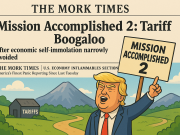In the kaleidoscope of the modern workforce, the gig economy emerges as a beacon of flexibility and opportunity, drawing in individuals across the generational spectrum. From industrious Gen Zers to the profoundly experienced Baby Boomers, the freelance marketplace thrives on the diverse talents and varying degrees of wisdom these professionals bring to the table. Yet, beneath the surface of this burgeoning economy, an old foe casts a long shadow—ageism, an often overlooked prejudice that threatens to undermine the collaborative potential inherent in age diversity.
As youth employment specialists, we must recognize the critical need to champion age inclusivity in the freelance community, a space where the convergence of youthful innovation and seasoned insight could yield unparalleled results. Herein, we explore the ramifications of dismissing age diversity and proffer actionable initiatives for fostering a genuinely inclusive freelancing ecosystem.
The Implications of Ageism in the Freelance World
Ageism in the freelance economy can manifest in various forms, from the overt—such as project postings explicitly seeking ‘young, vibrant freelancers’—to the subtle, such as biases in communication styles that favor one generation over another. The consequences are multifaceted: older freelancers may find themselves marginalized, overlooked for opportunities, or compelled to underprice their services, while younger talent might be undervalued for their perceived lack of experience.
This generational bias not only inflicts economic harm on individuals but also robs the marketplace of the rich dialogue and creativity that emerge from intergenerational collaboration. When we undervalue the contribution of any age group, we stifle innovation and reinforce a homogeneity that is anathema to the dynamic forces driving the gig economy.
Crafting an Age-Inclusive Freelance Marketplace
To cultivate an inclusive environment, freelancing platforms and clients must first acknowledge the existence and impact of age-based biases. What follows is a commitment to dismantling these prejudices through intentional strategies:
1. Promote Age-Agnostic Opportunities : Freelancing platforms can implement policies that discourage age discrimination in job postings and encourage clients to focus on skills, experience, and portfolios rather than demographics.
2. Facilitate Cross-Generational Mentoring : Establish mentoring programs that pair younger freelancers with veterans in the field. Such initiatives can foster mutual respect and learning, providing a structured space for knowledge transfer and professional growth.
3. Highlight Diverse Success Stories : Platforms should showcase success stories and case studies from freelancers of all ages, illustrating the value that each generation brings to the table and providing positive role models for both clients and freelancers.
4. Encourage Continuous Learning : The gig economy thrives on adaptability. Encouraging freelancers to engage in lifelong learning through webinars, courses, and workshops can ensure that skills remain current across all age groups, thereby leveling the playing field.
5. Implement Bias Awareness Training : Educating clients and freelancers about unconscious bias can lead to more mindful interactions and hiring practices, creating a more welcoming environment for all.
The untapped potential of age diversity in the freelancing economy is immense. By embracing an inclusive mindset and implementing these strategic measures, we can foster a landscape where the contributions of all generations are valued equally. In doing so, we not only enrich individual lives but also enhance the vibrancy and productivity of the freelance marketplace as a whole.
As we reshape the contours of work, worker, and workplace, let us forge a path of inclusivity that transcends age. After all, in a world as interconnected as ours, the synthesis of generational wisdom is not just beneficial—it is essential to our collective progress.




























